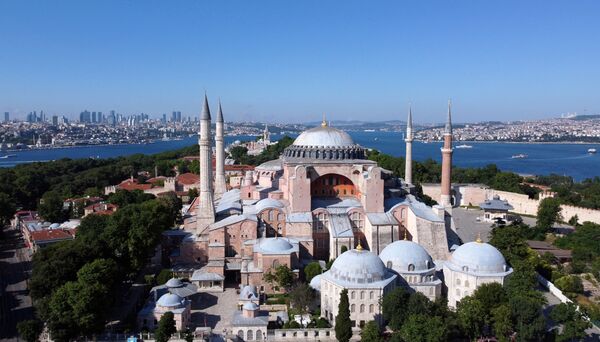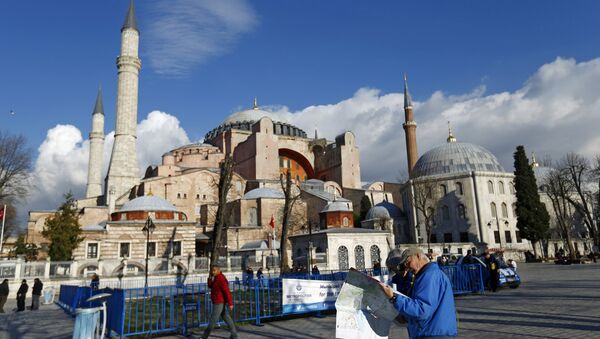The Syrian Hagia Sophia is planned to be built in Al-Suqaylabiyah in Hama province. The commander of the al-Suqaylabiyah National Defence Committee, Nabeel Abdallah, said that the idea of building the church primarily symbolises the life of Syrian Christians, and added that the project was financed from private sources and that there was no political background.
"This is a private project that is also privately financed. Even the land where the church is expected to be built is privately owned by a family of Syrian Christians, whose ancestors resisted the Turks back in the 1920s, like all Syrians at the time. One shouldn’t expect a grandiose construction: it will be a small church. I don’t think it’s worth the fuss they tried to make around it", he said.
Moreover, according to the official, the church will be built "in memory of all Syrian churches in our province and in our country in general that have suffered because of terrorists".

"We hope that there will also be a memorial to all Syrian Christians who suffered martyrdom for their faith in Christ, as well as to all the fallen defenders of the country, next to the church", he explained.
Nabeel Abdallah added that Patriarch John X of Antioch has blessed the construction of the church.
Abdallah explained that "Russia has nothing to do with this project": "we're planning to build everything on our own. However, some private sponsors from Russia have wished to help us with funding, but this is not official help from Moscow".
Hagia Sophia, an iconic religious site, was recently converted from a museum into a mosque after a historic 1934 decision made by the first Turkish president, Mustafa Kemal Atatürk, was reversed by Turkey's Council of State despite protests from Christian communities and some foreign governments.


